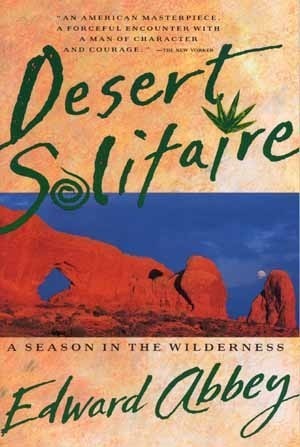More on this book
Community
Kindle Notes & Highlights
I’m a humanist; I’d rather kill a man than a snake.
In the afternoon I watch the clouds drift past the bald peak of Mount Tukuhnikivats. (Someone has to do it.)
He’s a good cowboy, I suppose; at least he knows the basic skills of the trade: can shoe a horse, rope and brand and castrate a calf, fix a flat tire, stretch barbed wire, dynamite a beaver dam or lay out an irrigation ditch. His English is about fifty per cent profanity,
“It happens. But only once.” “Once is enough.”
To refute the solipsist or the metaphysical idealist all that you have to do is take him out and throw a rock at his head: if he ducks he’s a liar.
“In the desert,” wrote Balzac, somewhere, “there is all and there is nothing. God is there and man is not.”
As an example of scientism he suggested the current superstition that science has lengthened the human life-span. One might as well argue that science, meaning technology, has actually reduced the average man’s life expectancy to about fifteen minutes—the time it takes an ICBM to cover the distance between the U.S.S.R. and the U.S.A.
In the desert I am reminded of something quite different—the bleak, thin-textured work of men like Berg, Schoenberg, Ernst Krenek, Webern and the American, Elliott Carter. Quite by accident, no doubt, although both Schoenberg and Krenek lived part of their lives in the Southwest, their music comes closer than any other I know to representing the apartness, the otherness, the strangeness of the desert. Like certain aspects of this music, the desert is also a-tonal, cruel, clear, inhuman, neither romantic nor classical, motionless and emotionless, at one and the same time—another paradox—both
...more


